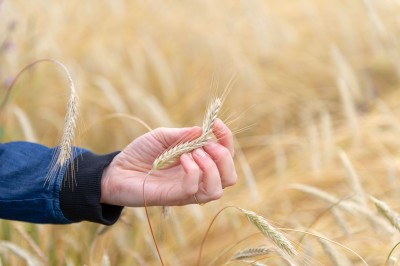Some of our planetary boundaries have already been exceeded. This is closely linked to how we produce and consume. Food production is of central importance here. The necessary transformation to a sustainable society requires people who shape change.
The Bachelor’s degree course in Sustainable Food and Agriculture (ErnA) helps you to understand the major challenges of our time. It offers a unique range of courses with technical, artistic and practical elements, and individual mentoring helps you to find a suitable profile for your studies and career. ErnA is the first Bachelor’s degree program to combine agriculture and nutrition with nature and resource conservation.
Programme structure
In the first semester, students discover the diversity of perspectives on agricultural and food culture and sustainability in a broader sense, for example through their first interdisciplinary project work. In a module on artistic and creative approaches to agricultural and food culture, they deal intensively with changes of perspective and learn to consciously adopt different perspectives themselves. The module also enables them to perceive and use different types of knowledge. They learn the basics of sustainable food production and plant health. In addition, the first semester provides students with a methodological basis for scientific work in interdisciplinary and transdisciplinary contexts, which they deepen in the sixth semester in connection with their Bachelor’s thesis.
The aim of the second semester is to recognize and understand challenges and potentials in the current agricultural and food culture. In this semester, students gain their first experience of transdisciplinary cooperation in the project module “Study partners in the organic sector”. In the module “Effective sustainable action”, they learn about the theoretical and methodological foundations of transformation research. They learn to categorize, discuss and evaluate their (future) experiences with different actors in the food system with regard to sustainability challenges, approaches to solutions and implementation knowledge on desirable futures.
The third semester is entitled “Exploring potential”. It begins with an eight-week, supervised practical phase for all students. Students can make use of the course’s practical network when choosing their internship company. In the second part of the semester, practical experience is combined with subject-specific content in courses. Part of the third semester is also the module “Policy Field Food Systems”, in which students deal with, among other things, the diversity of perspectives of actors and the influence of legislation on social reality in order to be able to take these findings and experiences into account in their later planning and actions.
The focus of the fourth semester is on “building bridges”. In the comprehensive, transdisciplinary project module “Food Cultures of the Future”, students work on joint projects with local stakeholders to develop exemplary solutions to problems that take into account different perspectives and logics of action. By choosing the topic to be worked on in the project module, students already define their own profile more clearly. Based on the first practical phase in the third semester and in preparation for the second practical phase in the fifth semester, students are additionally supported by individual mentoring from lecturers and practitioners. From the fourth semester onwards, students can also choose a total of six compulsory elective modules based on their interests in order to develop their individual profile and exploit their personal potential. In addition to individual profiling options, specific specializations in “Sustainable Product Development” and “International Transformation of Food Culture” are also offered, which students who wish to work in this field later on can take.
Strengthening one’s own profile is also the aim of the fifth semester, which begins with a twelve-week practical phase for all students and is supplemented by compulsory elective modules and a compulsory module on communication and participation. The latter is intended to process the results of the project module “Food Cultures of the Future” and make them publicly accessible. In the sixth semester, all findings and experiences from the course come together; the aim is therefore to synthesize them. The students complete their practically and conceptually oriented final thesis, if possible in cooperation with a practice partner. A supplementary module on cooperation in the food sector places their personal experience in a broader context.
After completing their studies, the majority of graduates enter the profession directly, whereby they can already draw on a network of contacts from their studies, especially their practical phases. Alternatively, they have the opportunity to expand their acquired skills in the consecutive M.Sc. program “Organic Agriculture and Food Systems” at HNEE.
Career opportunities
One degree, many career fields
– Food processing companies
– Food trade
– Biosphere reserves and nature parks
– Model eco-regions and organic cities
– Food councils
– Organic farming and food industry associations
– Foundations
– Consumer protection
– NGOs related to the area of nutrition
Overview
Bachelor's degree programme
Faculty
Landscape Management and Nature Conservation
Degree
Bachelor of Science
Standard period of study
six semesters
Language of instruction
German
Contact person
Dr. Stefanie Albrecht
03334 657-509
Stefanie.Albrecht@hnee.de





